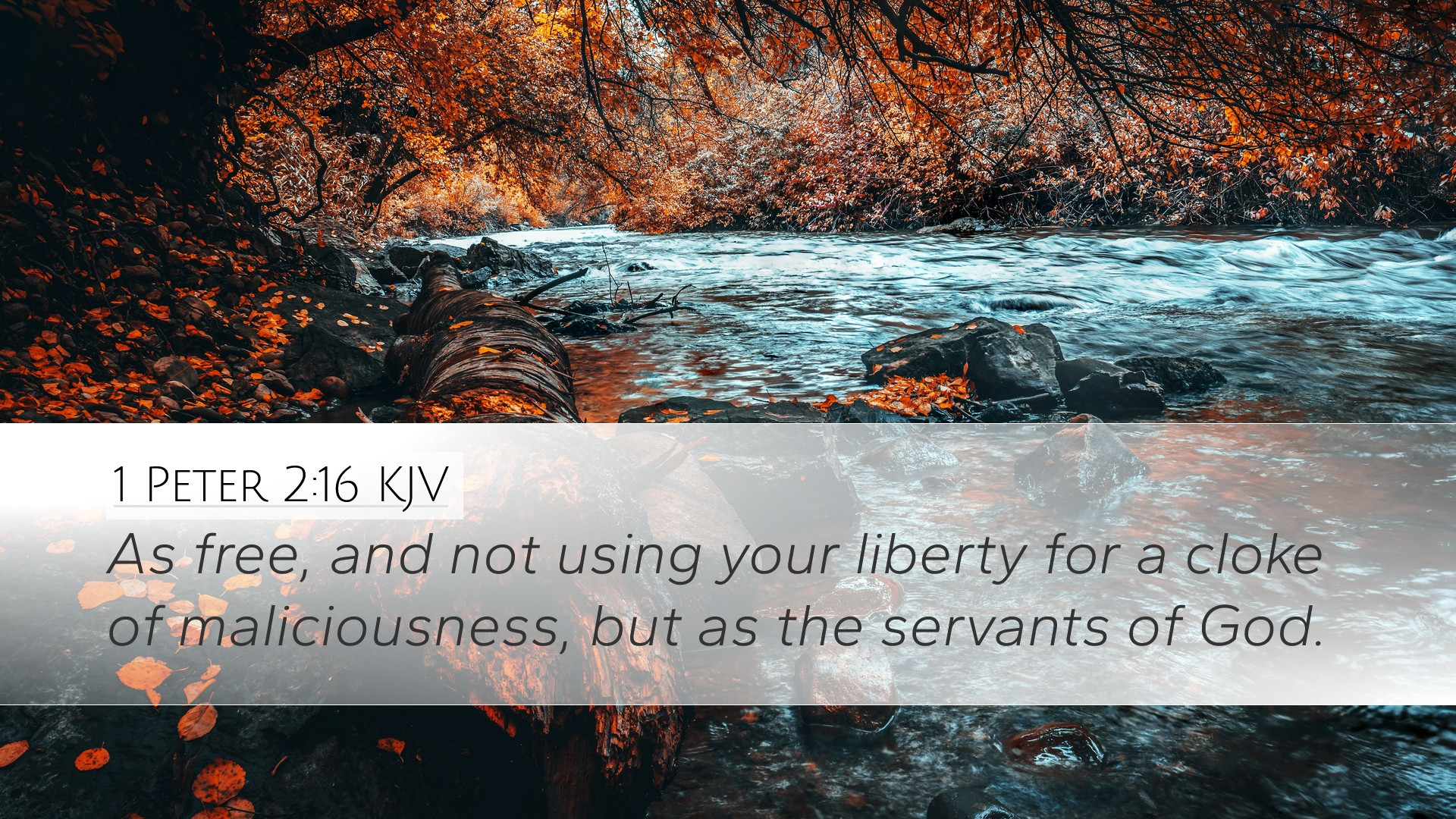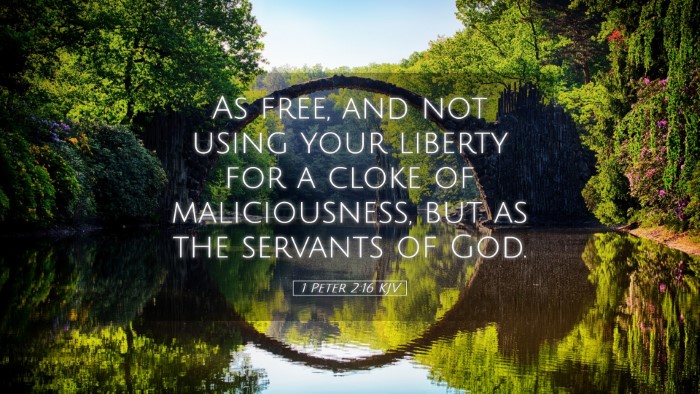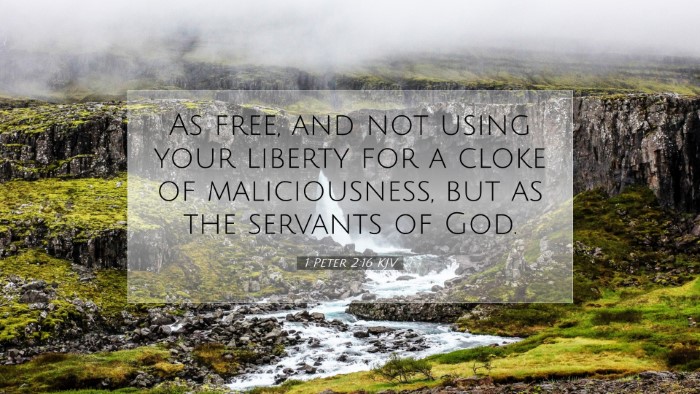Commentary on 1 Peter 2:16
Verse Text: "As free, and not using your liberty for a cloak of maliciousness, but as the servants of God."
Introduction
This verse encapsulates a vital principle of Christian living, emphasizing the balance between liberty and responsibility. In recognizing the freedom granted to believers, Peter cautions against misusing this liberty for ill purposes. The following commentary synthesizes insights from prominent public domain commentators: Matthew Henry, Albert Barnes, and Adam Clarke, providing a thorough exploration of the verse’s implications for Christians.
Exegesis of the Verse
- “As Free”:
Henry highlights that Christians are liberated from the bondage of sin and the Law through Christ’s redemptive work. This freedom ought to encourage believers to live righteously, reflecting God’s character. Barnes adds that this freedom is not a license to sin but an empowerment to serve God without fear of condemnation.
- “Not using your liberty for a cloak of maliciousness”:
Maliciousness suggests intentions leading toward wickedness or sin. Clarke warns that the danger lies in the potential for believers to cloak their ungodly actions under the guise of freedom. This phrase becomes a stern reminder that justification does not grant permission for immoral conduct.
- “But as the servants of God”:
Peter fundamentally redefines freedom as servitude to God. Barnes notes that true liberty aligns with divine service, turning the believer's focus towards fulfilling God’s righteousness rather than self-serving desires. Henry elaborates that being 'servants of God' fosters a life marked by holiness and dedication.
Theological Insights
This verse raises crucial theological reflections on the nature of Christian liberty:
- Intent of Freedom:
The intent behind Christian freedom is not self-indulgence but service. Henry insists that believers are to express their freedom by committing themselves to God's will, thus demonstrating their allegiance.
- Responsibility:
Clarke asserts that with great freedom comes great responsibility. Believers are reminded that license is not freedom; instead, true freedom is the ability to live according to God’s moral framework.
- Servanthood as a Reflection of Freedom:
According to Barnes, service to God is the highest form of freedom. As believers yield to His will, they experience authentic fulfillment and spiritual liberty. This challenges the notion that personal autonomy equates to freedom.
Practical Applications
The implications of 1 Peter 2:16 extend beyond theological exploration to practical Christian living. Below are several applications for pastors, students, and theologians:
- Ethical Conduct:
The verse serves as a call to pursue ethical and moral conduct in all aspects of life, ensuring that our behaviors align with God’s commandments rather than societal norms that may conflict with Scripture.
- Engagement with Society:
Church leaders must emphasize the importance of engaging in societal issues while maintaining integrity. As free beings, Christians should advocate for justice, mercy, and righteousness without resorting to malicious intent.
- Emphasizing True Freedom:
In a culture that often misdefines freedom, Christians ought to articulate the Biblical definition of liberty. Pastors should teach that true freedom is found in loving service to God and others, promoting a communal rather than individualistic approach.
- Accountability within Community:
This verse calls believers to hold each other accountable to high standards of conduct, reinforcing the idea that liberty should not lead to licentiousness.
Conclusion
1 Peter 2:16 is a powerful reminder of the interplay between freedom and servanthood in the life of a believer. By synthesizing insights from Henry, Barnes, and Clarke, we are led to understand that our liberty in Christ must be expressed through righteous living and service to God. This balance is crucial not only for personal integrity but also for the corporate witness of the church in a world desperately seeking authentic freedom.


